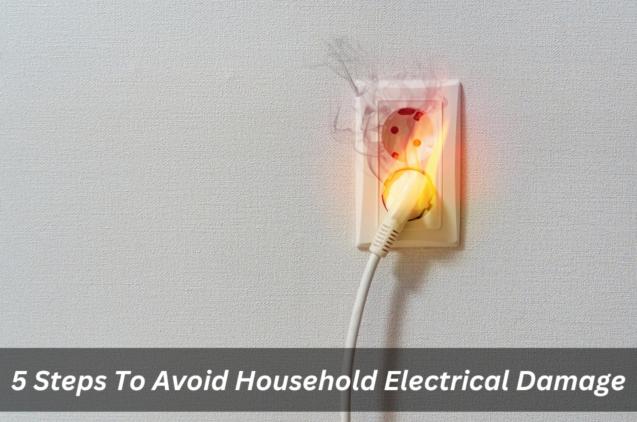
Winter To Spring In Sydney: Protect Your Home From Electrical Hazards
Moreover, within these pages, you'll discover invaluable recommendations for bolstering your home's defences against these perils, insights delivered by a distinguished emergency electrician Sydney residents trust. Embracing these insights not only promotes a safer living environment but also ensures that your transition into spring is marked by peace of mind and an uneventful electrical system.
Common Electrical Hazards in Sydney
Amid the delightful transformation from winter's chill to the vibrant energy of spring in Sydney, there's a need to be cautious about potential electrical hazards. In this section, we delve into the common culprits that can disrupt the harmony of your home. From innocuous-looking wires to the subtle risks of overloaded circuits, we uncover the lurking electrical threats that every homeowner should be aware of.
1. Loose or Frayed Wires
Wires that are loose or frayed are a silent danger lurking within walls and appliances. These seemingly innocuous issues can lead to short circuits or electrical fires if left unresolved. Signs to watch for include flickering lights, sparks, or a mild shock when plugging in devices.
2. Overloaded Circuits
The transition from winter to spring often involves swapping out heating appliances for cooling ones. However, overloading circuits with too many devices can strain the electrical system. This can result in overheating, leading to potential fires. To avoid this, distribute your devices across different outlets.
3. Faulty Appliances
Aging or poorly maintained appliances can become hazardous. Keep an eye out for appliances with frayed cords, unusual odours, or those that consistently trip circuit breakers. These appliances should be repaired or replaced promptly to prevent potential dangers.
4. Electrical Outlets Not Properly Grounded
Ungrounded outlets can expose you and your home to electrical shock. Ensuring that all outlets are properly grounded is crucial. If you're unsure about the grounding of your outlets, it's wise to consult professional emergency electricians.
5. Unprotected Outdoor Fixtures
Sydney's spring is known for sudden rain showers. Outdoor electrical fixtures, if not adequately safeguarded from the elements, can become potential hazards. Water ingress can result in short circuits and electrical shocks. Regularly inspect outdoor fixtures and ensure they are weatherproof.
How to Protect Your Home from Electrical Hazards
In an age where our lives are intricately woven with technology, ensuring the safety of our homes from electrical hazards takes precedence. However, these vital systems come with potential risks. To navigate these hazards and create a secure haven, understanding and implementing protective measures is key. This segment delves into the realm of safeguarding your home, unveiling insights that empower you to fortify your space against the lurking threats of electrical mishaps.
1. Regular Electrical System Inspection
Your home's electrical system requires routine inspections. A qualified electrician can delve into the hidden network of wires and components, identifying potential hazards before they escalate. These proactive assessments not only ensure the safe functioning of your electrical system but also provide peace of mind. Regular checks are an investment in your home's safety, helping you avoid unexpected disruptions and potential dangers.
2. Proper Grounding of Outlets and Appliances
Confirm that all outlets and appliances are properly grounded. This step mitigates the risk of electrical shocks and potential fires. If you're unsure, it's best to consult an expert.
3. Utilise Surge Protectors
Spring showers and sudden weather changes can result in power surges. Use surge protectors to shield your electronics from these voltage fluctuations. This simple step can extend the lifespan of your devices while keeping your home safe.
4. Regular Inspection of Outdoor Fixtures
Outdoor fixtures, such as lighting and outlets, should be regularly inspected to ensure they're well-sealed against moisture. Consider installing weatherproof covers to protect them from rain and humidity.
5. Professional Intervention
If you suspect any electrical hazards in your home, refrain from attempting to address them yourself. Electrical issues require the expertise of a qualified electrician. Promptly call an emergency electrician to assess and rectify the problem.
Identifying Electrical Emergencies and Common Problems
Understanding how to identify electrical emergencies is paramount:
1. Frequent Circuit Breaker Trips
Imagine the frustration of a circuit breaker that repeatedly trips, plunging your home into darkness. While an occasional trip can be normal, frequent occurrences demand attention. This phenomenon is often indicative of an overloaded circuit struggling to accommodate the energy demand.
It could also point to an underlying issue such as a short circuit or faulty wiring. Ignoring these signals can lead to compromised safety and potential fires. If you find yourself resetting your circuit breaker frequently, it's crucial to consult a professional electrician. Their expertise can diagnose the root cause and ensure your home's electrical system operates smoothly.
2. Flickering or Dimming Lights
This phenomenon, often dismissed as a minor inconvenience, can hold more significant implications. Those flickering lights might indicate loose wiring, deteriorating connections, or an overloaded circuit. Dimming lights, especially when using high-energy appliances, could signal an unstable power supply.
These seemingly harmless occurrences might point to underlying electrical issues that demand attention. Addressing them promptly can prevent potential hazards, safeguard your home from the risks of electrical fires and ensure a consistent and secure power supply for your everyday activities.
3. Burning Odours or Sparks
Burning odours or sparks from outlets or appliances are clear signs of trouble. Immediately disconnect the affected device and contact an emergency electrician in Sydney.
In the transition from winter to spring, safeguarding your Sydney home from electrical hazards is a paramount responsibility. By understanding the common risks and adopting preventive measures, you can effectively protect your loved ones and property from potential dangers. Remember, if you're unsure about any electrical issue, consult a qualified electrician without delay. Ensuring electrical safety is a step towards enjoying a vibrant and hazard-free spring season.



